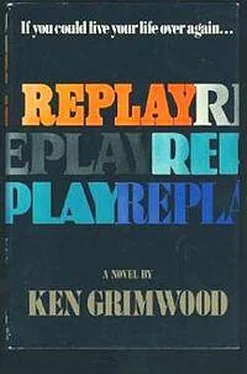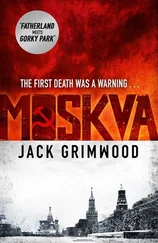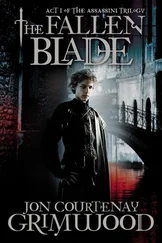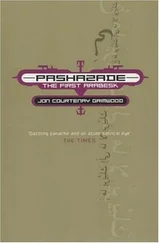Jeff blinked, kept his voice steady. "I can’t tell you that. All I can say is, this is far more than a hunch. It’s a certainty."
"That sounds suspiciously like—"
"There’s nothing illegal involved, I swear. You know they couldn’t fix a Series these days, and even if they could, how the hell would I know anything about it?"
"You talk like you know plenty."
"I know this much: We can’t lose this bet. We absolutely cannot lose it."
Frank looked at him intently, tossed off the rest of his Scotch, and signaled for another. "Well, shit," he muttered. "Before I ' met you last April I figured I’d be living on a scholarship this year."
"Meaning what?"
"Meaning I guess I’ll come in with you on this fool scheme. Don’t ask me why, and I’ll probably blow my brains out after the first game. But just one thing."
"Name it."
"No more of this seventy-thirty crap and you putting up all the money. We both take our chances, throw in whatever we’ve got left from Vegas—including what I raked in at the tables—and anything we win we split down the middle. Deal?"
"Deal. Partner."
It was the October of Koufax and Drysdale.
Jeff took Sharla to Yankee Stadium for the first two games, but Frank couldn’t even bring himself to watch them on television.
The Dodgers took the opener 5-2, with Koufax pitching. Johnny Podres was on the mound the next day, and with an assist from ace reliever Ron Perranoski he held the Yankees to one run, while the Dodgers punched in four on ten hits.
The third game, in L.A., was a Drysdale classic: a 1-0 shutout, with "Big Don" putting the Yankees down one right after the other. In six of the nine innings, Drysdale came up against only the minimum three batters.
Game number four was a tight one; even Jeff, watching it in color at the Pierre in New York, started to sweat. Whitey Ford, pitching for the Yankees, was up against Koufax again, and they were both out for blood. Mickey Mantle and L.A. s Frank Howard each slammed in homers, making it a 1-1 tie by the bottom of the seventh. Then Joe Pepitone made an error on a throw by Yankee third baseman Clete Boyer, and the Dodgers Jim Gilliam tore into third. Willie Davis was up next, and Gilliam scored the deciding run on Davis’s fly to deep center.
The Dodgers had shut out the Yankees in the World Series, the first time that had happened to the New York club since the Giants had pulled it off in 1922. It was one of the great upsets in baseball history, an event Jeff couldn’t have forgotten any more than he’d be likely not to remember his own name.
At Jeff s insistence, Frank had spread their $122,000 bet among twenty-three different bookies in six cities and eleven different casinos in Las Vegas, Reno, and San Juan.
Their total winnings came to more than twelve million dollars.
The betting was over; they both knew that. The word was out on him and Frank, and there wasn’t a bookie or casino in the country that would accept any sizable wager from either of them.
There were, of course, other kinds of bets, under more genteel names.
"… put the accounting section in that office there, and legal staff here across the hall. Now, down this way…"
Frank was obviously taking great pleasure in showing Jeff around the still only half-furnished suite of offices on the fiftieth floor of the Seagram Building. He’d selected the site, with Jeff’s approval, and had taken charge of all the minutiae of organizing what needed to be done, from their original incorporation as "Future, Inc." to the hiring of secretaries and bookkeepers.
Frank had quit law school, and they’d tacitly agreed that he would oversee the day-to-day operations of the company while Jeff made the larger decisions about investments and overall corporate direction. Frank no longer questioned the validity of Jeffs recommendations, but there’d been a strange pall between the two partners since the World Series coup. They rarely socialized, but Jeff knew Frank had been drinking more than ever before. His former curiosity had been replaced with an apparent growing fear of just how much Jeff knew and how he knew it. The matter was never discussed again.
"… through this reception area here—just wait’ll you see the knockout who’ll be sitting at that desk a couple of weeks from now—and … here … we … are!"
The office was expansive yet somehow cozy, impressive without being intimidating. A black Barcelona chair awaited its owner behind the large oval oak desk, which faced a well-stocked bar and a handsomely cabineted TV-stereo console. Floor-to-ceiling windows on two walls offered views of the Hudson River on one side and the towers of midtown Manhattan on the other. The several flourishing plants gave a lush feeling to every corner of the room, and the framed Pollocks offered testament to the worth of human creativity. Amusingly, and with perfect appropriateness, one block of wall space was devoted to a photographic blowup of a horse bedecked with flowers: Chateaugay, in the winner’s circle after the Kentucky Derby.
"All yours, buddy," Frank said, smiling.
Jeff was touched by what his friend had done. "Frank, it’s fantastic!"
"'Course, anything you don’t like, we can change right away. Designer understands it’s all preliminary—you have to approve it. After all, you’re the one’s gotta work in here."
"Everything’s great just as it is. I’m astounded. And you can’t tell me some designer came up with the idea of that picture of Chateaugay."
"No," Frank admitted, "that was my suggestion. Thought you might get a kick out of it."
"It’ll give me inspiration."
"That’s what I’m counting on." Frank laughed. "Jesus, when I think how fast all this has happened, how—Well, you know what I mean." The moment of boyish glee was retracted as quickly as it had appeared. This whole experience was aging Frank: the unspoken and unanswerable questions, the shockingly sudden and inexplicable success … It was all more than he could readily deal with.
"Anyway," Frank said, looking away toward the empty reception area, "I’ve got a whole pile of stuff to take care of today. Ordered a bunch of the new office calculators from Monroe; they should have been here two days ago. So if you want to just settle in here a bit, get a feel for the place…"
"It’s all right, Frank; you go ahead. I’d very much like to sit here and think for a while. And thanks again. You’re doing a terrific job—partner."
They shook hands, clapped each other on the shoulder in a self-conscious gesture of camaraderie. Frank strode away toward the near-empty offices, and Jeff eased himself into the enfolding comfort of the Barcelona chair behind the massive desk.
It had all been so easy, easier even than he’d imagined. The races, the inning-by-inning replays of the World Series games … and with the huge amount of capital accumulated from those sure-thing bets, there was no limit to what he could do now, with equal or greater ease.
He’d already begun studying stock prices, reviewing what he knew of the world to come and applying that knowledge to an extrapolation of the current market situation. He couldn’t remember every dip and rise of the economy for all those years, but he was certain he had enough general insight to make consideration of minor recessions and setbacks irrelevant.
Some investments were obvious: IBM, Xerox, Polaroid. Others took a bit more thought, connecting in his mind social changes already underway or soon to come with the companies that would benefit from those changes. The rest of the decade, Jeff knew, would be a time of general prosperity, with Americans traveling widely for business or amusement; Future, Inc. should invest heavily in hotel and airline stocks. Similarly, Boeing Aircraft had to be in for a long upswing, even though the much-vaunted SST program would soon be canceled; the 727 and 747, neither announced yet, would become the primary commercial planes of the next twenty-five years. Other aerospace companies would have their own successes and failures, and Jeff felt sure some careful research would help jog his memory as to which had been awarded the most lucrative contracts for the Apollo program, and, ultimately, to build the space-shuttle fleet.
Читать дальше












